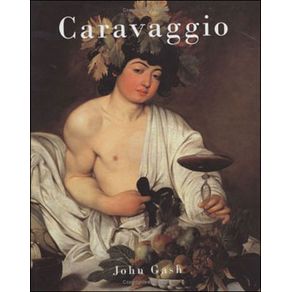Michelangelo Merisi (1571-1610), known as Caravaggio, after his home town in Lombardy, was arguably not only the finest painter of the late Renaissance and early Baroque periods, but one of the great artists of all time. He must also rank among the most revolutionary of those who, from time to time, have sought to overthrow established artistic orthodoxy through a return to, or strengthening of, naturalism. His two principal innovations - his use of chiaroscuro and his practice of painting directly from posed models- imbued his picturesque genre scenes of cardsharps and fortunetellers and his groundbreaking religious paintings, so redolent of the spirit of the Counter Reformation, with an intense, crisply etched presence. While his capricious character, aggressive behavior, and bohemian way of life have intrigued the modern imagination, fueling the notion of him as an embattled outsider who channeled the complexities of his own make-up into an assertively iconoclastic art. In this new edition of his authoritative text, which places Caravaggio's achievement squarely within the cultural and religious contexts of his time, John Gash has incorporated several recent documentary and pictorial discoveries. The book illustrates most of Caravaggio's surviving paintings, executed in Rome, Naples, Malta and Sicily at the turn of the sixteenth and seventeenth centuries, the majority of them in color.



